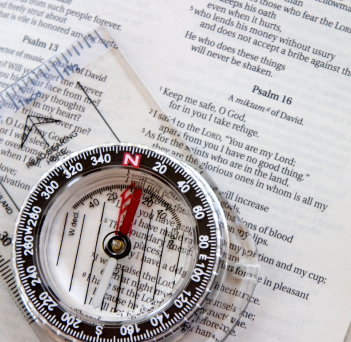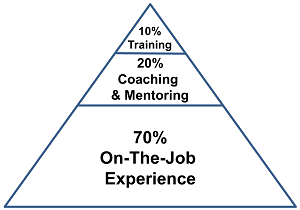When you walk in the room, who shows up for Read more →
Help Leaders Keep Their Bearings with Hot Ethics Training
Posted Tuesday, June 4, 2013Allen Slade
When I was a midshipman with the U.S. Navy, it was post-sail but pre-GPS. In the middle of a training exercise, our captain turned off the LORAN system. He wanted to make sure his officers could figure out their location and destination even if the satellites failed.

The U.S. military also relies on its leaders to have a strong moral compass. Yet, despite a focus on preventing sexual assaults, the number of reported cases has increased.
One strategy to maintain ethical bearings is through targeted training. Yet training does not always work. Two recent instances of alleged sexual misconduct involved a sergeant who was a Sexual Harassment/Assault Response and Prevention coordinator and a colonel in a sexual-assault prevention office. The sergeant and the colonel surely had gone to almost every sexual ethics training class without the desired impact.
Ethics training can be effective, but only if you address the root cause of the ethical lapse. In Why Leaders Fail, I suggested three types of ethical lapses (based on the research of Mary Gentile):
Failures of Awareness – not knowing what kinds of ethical breaches might occur.
Failures of Analysis – being aware of a sensitive issue but not knowing how to think through the ethical situations.
Failures of Action – being aware of the issue and able to analyze the situation, but not acting according to your values.
Most training focuses on transfer of knowledge or skills. But ethical lapses rarely come from lack of awareness or faulty analysis. Instead, most leaders fail at the point of action. They notice the issue, they know what to do, but they don’t act or they take the wrong action.
Cold Training for Hot Action?
Classroom lectures are emotionally cool. PowerPoints and videos do not provide much emotional heat. Case studies, group discussion and exercises can be a bit warmer, but if the classroom environment is “safe” then the emotional warmth is fleeting and inauthentic.
Ethical lapses occur in emotionally heated situations. As our emotions heat up, our cognition narrows. Our decisions are faster but our choices are fewer. Fear or anger triggers our “fight or flight” reflex. Creativity lessens and we struggle to balance competing priorities. Cold training does not prepare us for hot action.
Hot Training
You can increase the emotional temperature of leadership ethics training through simulations. But not just any simulation will do. Simple decision making simulations, such as the Army’s “Team-Bound” video game, can be too simple and emotionally uninvolving to help with ethics training.
A powerful simulation engages the intellect and the emotions. You need meaningful stakes to add heat – the training has to count. And the simulation must have subtlety and time pressure.
For example, I worked with a hiring simulation for recruits for a B-to-B sales job. The recruits prepared for a meeting with a simulated buyer. The “buyers” quickly put the recruits in their place. They interrupted, complained about the recruits’ inexperience, and refused to listen to reason. To win a job offer, a recruit had to be emotionally hardy AND persuasive.
Another example is the S&A simulation “Cleaning Up the Clunkers.” It has complex decisions, time pressures and temptations to make it emotionally realistic. The participants buy scrap cars and resell the recyclable content. While most participants don’t see Clunkers as an ethics simulation, there are opportunities to short change customers, breach contracts and illegally dispose of toxic wastes.
Hot training – meaningful stakes, subtlety, complexity and time pressure to engage the intellect and the emotions – is much more likely to shape how leaders decide to do the right thing in the heat of the moment.
Training is Only Part of the Answer
Leadership training should only be part of your leadership development process. I like the 10%/20%/70% rule of leadership development:
Most of your efforts should go into on-the-job development, with coaching and mentoring available to bridge the gap between the classroom and the job. Coaches and mentors should be fully versed in your organization’s ethical standards and have a deep understanding of ethics in action.
Bottom line: Cold ethics training does not help leaders take the right action in the heat of the moment. To prepare leaders to make the right choices, you need hot training that simulates the time pressures, complexities and emotions at the point of action. And you need coaching and mentoring to connect training to on-the-job experience.
At Slade & Associates, we are passionate about helping leaders create dialogue and insight for intelligent change. We don’t offer cold ethics training because it doesn’t create change. Maybe you shouldn’t either.


